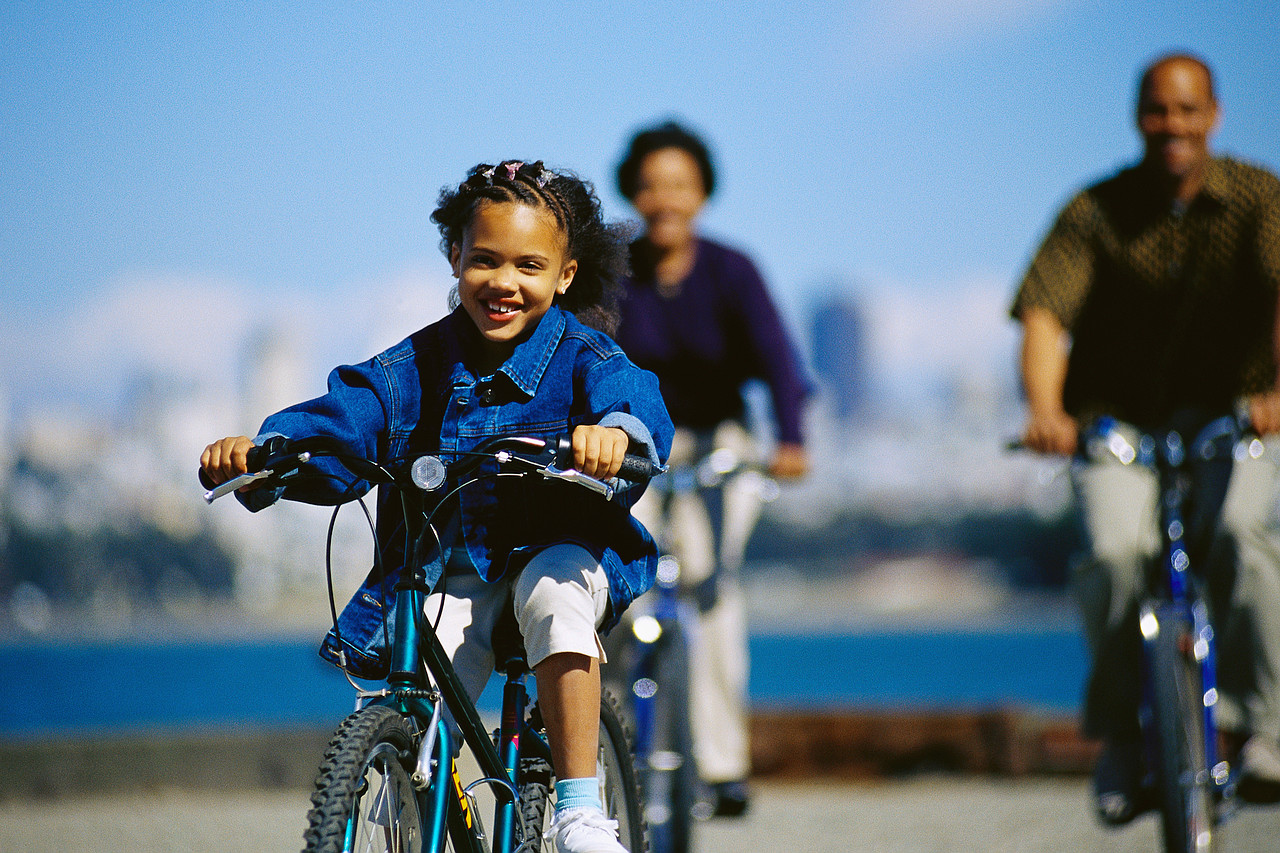 |
| Photo credit: Coalition for Clean Air |
Biking is a healthy, low-impact aerobic or cardiovascular exercise. Biking sociable and provides a great workout. Suitable everyone,
any age or level of fitness. It is also fun, cheap and
good for the environment.
Biking can be done outdoor and indoors (stationary biking or
spinning). Biking helps weight loss as it burns
calories (one can burn up to 500 calories in 40min.) and improves health. It is also great for conditioning of the body, giving you a
particularly great leg workout. Biking depends on working your muscles
through numbers of repetitions at a maintainable resistance level,
meaning that you can truly tone your legs and butt even your arms and upper body will benefit as you stand to pedal.
It can also energize you for other exercises you plan to do. Bike
instead of driving to the gym to warm up and cool down from your
workouts.
You can do it for charity, much like a 5K or 10K run.
There are lots of bike race events out there held to raise money
for great causes, such as cancer research, domestic abuse
and local organizations. Have a look at what’s going on in your
area—most races give options as to how far you want to go.
Biking For Health and Fitness
It only takes two to four hours a week to achieve a general improvement to your health. Biking is:
- Low impact – it causes less strain and injuries (gentle on your joints and helps preserve cartilage) than most other forms of exercise.
- A good muscle workout – biking uses all of the major muscle groups as you pedal.
- Easy – unlike some other sports, cycling does not require high
levels of physical skill. Most people know how to ride a bike and, once
you learn, you don’t forget.
- Good for strength and stamina – biking increases stamina, strength and aerobic fitness.
- As intense as you want – Biking can be done at
very low intensity to begin with, if recovering from injury or illness,
but can be built up to a demanding physical workout.
- A fun way to get fit – the adventure and buzz
you get from coasting down hills and being outdoors means you are more
likely to continue to bike regularly, compared to other physical
activities that keep you indoors or require special times or places.
- Time-efficient – as a mode of transport, biking replaces
sedentary (sitting) time spent driving motor vehicles or using trams,
trains or buses with healthy exercise.
Regular biking lowly builds your endurance, helps fight the incremental weight gain and
waistline expansion that many people experience at midlife - so add it into your daily routine for an excellent workout!
Wheels Up:
Learn to Ride A Bike In 5 Simple Steps

No comments:
Post a Comment